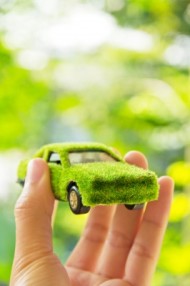Resources Practices
How we use and discard our resources is going to determine the habitability of our planet within the next 20 years.
According to the United Nations Environmental Programme (UNEP), global consumption of natural resources could triple to 140 billion tons a year by 2040 with a huge human population of 9.3 billion. The panel of scientists at UNEP say that we need to completely rethink the use of resources and massively invest in technological, financial, and social innovations to at least freeze consumption levels in wealthy countries.
While the governments and scientists around the world are stepping up to create wide-scale, sustainable, clean energy, we, as collective individuals must develop a resource management practice to reduce, reuse, and recycle our resources and waste.
Let’s focus on three major areas:
1. Electricity
- Turn off all non-productive electrical appliances and equipments. Be conscious to turn the electrical socket switches off, do not leave equipments on stand-by mode, they are still consuming energy and generating heat. A few major areas to pay attention to:
(a) air-conditioners, washing machines and dryers, television and home-theatre equipments; if comfortable, switch to fans rather than using air-cons; use energy-efficient refrigerators;
(b) computers, printers, PDAs, digital cameras, and mobile phones;
(c) turn off the lights, fans, and air-con when you leave the room.
2. Water
(a) install low-flush toilets and water restrictors on faucets and shower heads; if you live in Singapore, the National Water Agency has a programme called Water Efficient Homes to help residents save water at home. It’s a free service; you can call their 24-hour Call Centre at 1800-2846600 or email PUB_One@pub.gov.sg to request for an appointment and someone will come to your home and install thimbles on your toilets, faucets or shower heads.
(b) find creative ways to reuse water; e.g. water used for washing food can be used for watering plants or washing heavily soiled linens or cooking utensils;
Click here for a simple idea to recycle shower water;
(c) fill the basin up before washing your face, turn off the water while lathering in your bath, brushing your teeth, shaving, cleaning the dishes.
3. Petrol
- Reduce your petrol consumption by:
(a) changing to a hybrid car; CNG is much cheaper than petroleum, and it emits 30% less carbon dioxide;
(b) switching to a smaller and fuel-efficient car; a clutch-shift car is less petrol intensive than an automatic car;
(c) switching off your car engine when not in use; maintain the correct tyre pressure and clean your air filter regularly;
(d) reducing usage of your car: consolidate car trips, carpool, ride a bike, walk for short trips, take public transport.
Reducing, Reusing, and Recycling Waste
- Cut down plastic usage. Bring your own green bags for shopping. Use biodegradable plastic bags for garbage disposal. Cut down the purchasing of anything that is made of plastic;
- Use recycled paper for printing. Print on both sides of the paper. Find ways to reuse unwanted one-sided printed paper; (idea: instead of using post-its, create your own notepad with paper sheets already used on one side, by binding the sheets together with a big paper binder clip);
- Convert to electronic billing to cut down paper billing. Unsubscribe from magazines that you do not read or use;
- Throw metal cans, glass and paper in recycling bins; here is where you can find these in Singapore;
- Be mindful of not throwing away but donating the following items: furniture, handphones, computers, electrical equipment, clothing, and footwear. (Where in Singapore to give away what you no longer use? Click here for ideas.)
Check out this online publication called Zero WasteSG dedicated to help Singapore eliminate the concept of waste and move toward the goal of zero waste; it offers great solutions for reducing, reusing and recycling.
